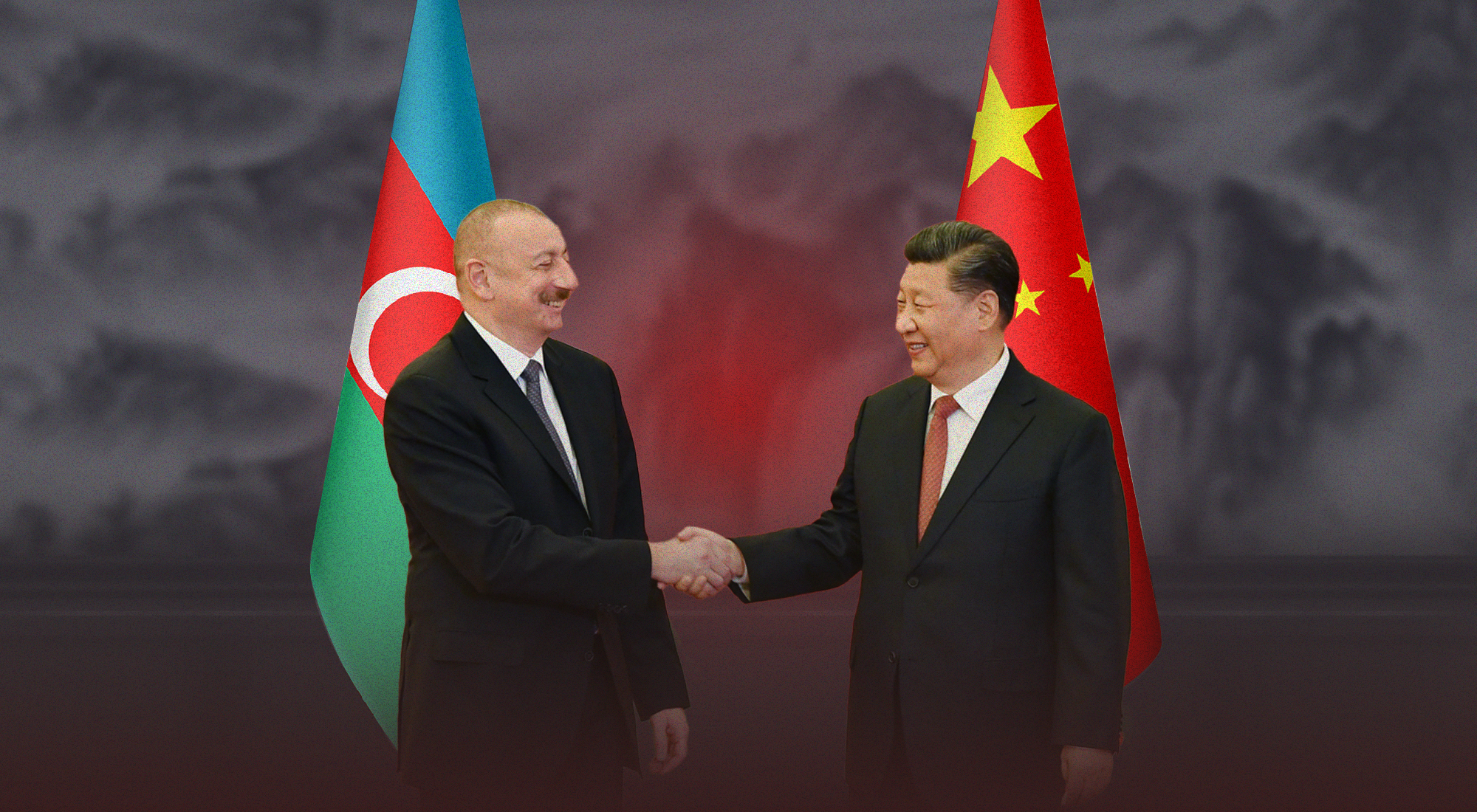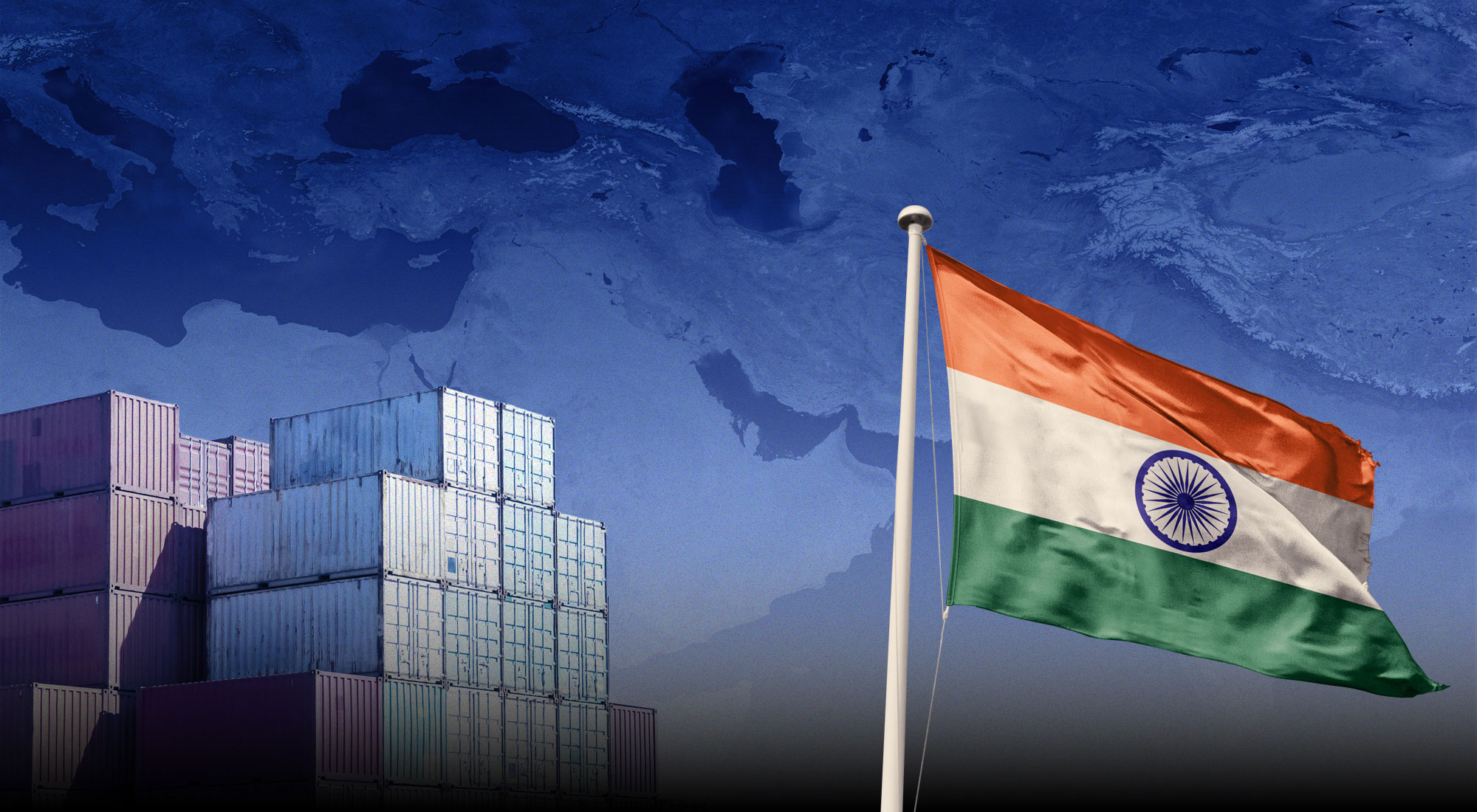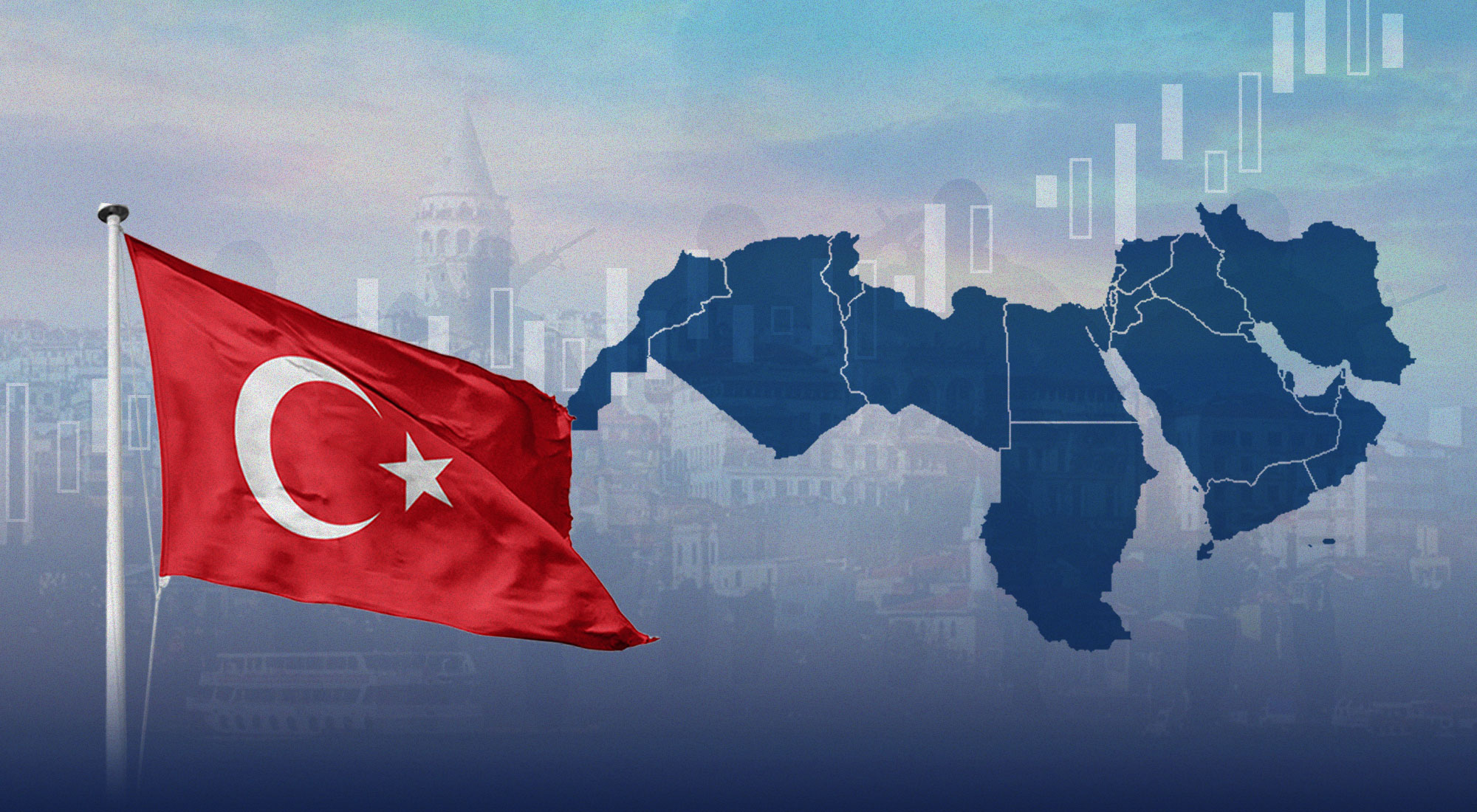The international system is undergoing profound changes, marked by the ongoing Russia-Ukraine conflict and the intensifying U.S.-China strategic competition. This shifting global landscape has prompted small and medium-sized nations to reassess and adapt their foreign policy approaches. Azerbaijan, situated at the crossroads of Eurasia, exemplifies this strategic recalibration. Since gaining independence in the 1990s, Azerbaijan has pursued a multi-vector foreign policy, deliberately avoiding excessive reliance on any single power while working to enhance its strategic significance in the South Caucasus and broader Eurasian region.
China’s dramatic rise as both an economic powerhouse and a geopolitical actor has positioned Beijing as an increasingly important partner in Azerbaijan’s strategic calculations. This shift became particularly evident with the declaration of a strategic partnership between the two countries in 2024, reflecting Baku’s growing intention to deepening its engagement with China.[1] Azerbaijan’s push to strengthen ties with China is driven primarily by two interconnected factors: the potential for economic-technological cooperation and political-strategic considerations.
1. Economic-Technological Cooperation
A key driver of Azerbaijan’s pursuit of closer ties with China is Beijing’s growing prominence in the global economic and technological landscape. Baku has shown particular interest in attracting Chinese investment to emerging sectors, especially renewable energy, rather than its traditional oil and gas industry. This strategic focus can be attributed to several factors. Firstly, Azerbaijan’s established position as a key energy supplier to the European Union (EU), combined with existing infrastructure constraints, makes Chinese investment in its hydrocarbon sector less attractive for both sides. The gradual decline in Azerbaijan’s oil production further underscores this reality, potentially deterring traditional energy investors.[2]
Secondly, by fostering cooperation with China in emerging industries, Azerbaijan aims to reduce its dependence on Western capital and technology, thereby enhancing its economic flexibility and autonomy. This strategic diversification has gained traction as Azerbaijan actively collaborates with Chinese companies across three critical sectors: renewable energy, electric vehicle (EV) production, and space technology.
2. Renewable Energy
In the renewable energy sector, Azerbaijan has engaged with multiple Chinese companies, such as Envision Energy[3] and China International Energy Sources Group, to attract investment.[4] Chinese companies are already playing a crucial role in Azerbaijan, particularly as suppliers of technology and key components. For instance, in January 2020, the Ministry of Energy of Azerbaijan partnered with Masdar from the UAE to build a 230 MW solar power plant in Garadagh, Azerbaijan.[5] Chinese firm Dongfang Electric provided the Bluebee Smart O&M solution[6] for the project, while LONGi supplied solar photovoltaic (PV) modules.[7]
For Azerbaijan’s first large-scale PV power plant in Gobustan, the SG320HX string inverters and MV Stations (MVS) from Chinese firm Sungrow were deployed.[8] The China State Construction Engineering Corporation (CSCEC) also facilitated grid-connected electricity generation for this photovoltaic power station.[9] Furthermore, on January 9, 2020, Azerbaijan’s Ministry of Energy signed an implementation agreement with ACWA Power of Saudi Arabia to build a 240 MW wind power plant in the Khizi and Absheron regions.[10] This project also involved wind turbines supplied by Chinese firms.[11]
Chinese companies are not limited to the role of input suppliers. Baku is actively working to attract these companies to lead projects of their own. Currently, Chinese firms are constructing a solar power plant in Fizuli.[12] In 2023, Azerbaijan’s Ministry of Energy signed a Memorandum of Understanding (MoU) with China Gezhouba Group Overseas Investment to develop renewable energy projects with a capacity of 2 GW. This partnership encompasses exploring investment opportunities in large-scale solar and wind energy, energy storage, smart energy systems, and green hydrogen production in Azerbaijan.[13]
The active involvement of Chinese companies in Azerbaijan’s renewable energy market paves the way for long-term cooperation that benefits both sides. For Azerbaijan, investments from Chinese companies support its ambitious green energy targets, including increasing the share of renewables to 33% of its installed capacity by 2027.[14] A higher share of renewable energy enables Azerbaijan to sustainably meet more of its domestic energy demand while freeing up traditional energy resources for export to other markets. Moreover, the participation of Chinese firms boosts Azerbaijan’s renewable energy production capacity, aligning with its vision to eventually export electricity to the European market in the long term.
For China, the involvement of its companies as both suppliers and developers of renewable energy projects in Azerbaijan strengthens its position in the regional green energy market. Azerbaijan also provides an essential outlet for Chinese manufacturers of renewable technology—such as wind turbines and solar panels—who face overcapacity in the domestic market. This cooperation extends China’s green technology footprint and enhances its soft power in the region by positioning it as a leading green energy developer. Over time, this strengthens China’s reputation both among Azerbaijan’s elites and the general public.
3. Electric Vehicle
Beyond renewable energy, Azerbaijan is increasingly focusing on the EV sector as a key area for attracting Chinese investment. The year 2023 marked a significant milestone, with 3,102 electric vehicles imported from China—a figure surpassing the total EV imports from all previous years combined. In financial terms, Azerbaijan allocated US$125 million for EV imports in 2023, with China accounting for the lion’s share at US$90 million. This represents a substantial increase compared to 2022, when only US$10 million was spent on Chinese EVs.[15]
Azerbaijan, however, aims not only to import EVs but also to localize production to strengthen its non-oil sector. Cooperation with China in the automotive industry began in 2010 when the NAZ-Lifan plant in Nakhchivan started producing vehicles using Chinese components.[16] In 2022, production at this facility, expanded to include pickups and EVs from the Chinese brand ZX Auto. In 2023, assembly of Maple X3 PRO cars was also initiated at the plant.[17]
In a further step toward localization, Electrify Azerbaijan Company signed a framework agreement with China’s BYD Company Limited to modernize Azerbaijan’s passenger bus fleet. This agreement includes the purchase, servicing, and establishment of local production of electric buses. BYD plans to invest US$60 million to establish production facilities in Azerbaijan by 2026, focusing on manufacturing light-duty electric trucks, municipal service EVs, and electric passenger cars. Battery production for energy storage is scheduled to begin in 2028, while local production of spare parts will commence by 2025, with the goal of achieving 40% localization of total bus production costs by 2030. As part of this partnership, Azerbaijan has already imported 160 electric buses from China, while buses from another Chinese company, Yutong, have also been added to the fleet.[18]
The cooperation on EVs presents a wide array of opportunities for both countries. For Azerbaijan, partnering with China provides affordable access to EVs for citizens, encouraging a shift from traditional petroleum-powered vehicles to electric alternatives. This transition can ultimately reduce oil consumption, lower economic expenditures, and contribute to emissions reductions aligned with Azerbaijan’s climate goals. Additionally, collaboration with Chinese firms creates job opportunities and supports the localization of EV production, fostering the growth of Azerbaijan’s non-oil sector and enhancing human capital development. Production facilities established under this cooperation not only meet domestic demand but also position Azerbaijan to export EVs to neighboring countries.
For China, investments in Azerbaijan strengthen its presence in the South Caucasus EV market, increase market share, and enhance brand visibility, helping Chinese companies maintain an edge over Western competitors in the long term. This partnership also enables China to influence regional standards and practices within the EV industry.
4. Space Technology
In addition to green technologies, Azerbaijan is actively pursuing collaboration with China on space programs. Recently, Azerbaijan joined China’s International Lunar Research Station (ILRS) project, which aims to establish a permanent lunar base in the 2030s. This agreement covers broad areas of cooperation, including the demonstration, implementation, operation, and application of the ILRS, as well as training and other collaborative efforts between the China National Space Administration and Azercosmos.[19] Additionally, Azercosmos has installed a 7.3-meter S/X-band terrestrial antenna from China’s Emposat at its Main Satellite Ground Control Station. This advanced technology enables reliable and modern space-to-ground services, allowing Azerbaijan to receive precise satellite signals[20]
Azerbaijan’s partnership with China in the space sector aligns with its efforts to reduce reliance on oil and gas revenues, fostering growth in science and technology industries—an important step toward its long-term ambitions of participating in lunar, Mars, and interplanetary missions by the 2030s. This collaboration with China also reduces Azerbaijan’s dependence on Western countries for critical technology, allowing it to diversify its international space partnerships. These partnerships include projects with Israel, Türkiye, and companies like SpaceX, opening avenues to new industries and contributing to economic development.
For China, Azerbaijan’s involvement in its space program helps build a network of international partners for its space initiatives, providing a counterbalance to U.S.-led coalitions in space exploration. This cooperation positions China’s space program as a credible alternative to the U.S.-backed Artemis lunar exploration program, bolstering its influence in global space exploration efforts.
5. Political-Strategic Considerations
Beyond economic and technological considerations, political-strategic factors also drive Azerbaijan to strengthen its relationship with China. Three primary elements shape this shift in Baku’s foreign policy. First, fluctuating relations with the West have elevated China’s importance as a strategic partner for Azerbaijan. Key events, such as the French Senate’s resolution in January 2024 calling for sanctions against Azerbaijan, the Council of Europe’s exclusion of Azerbaijani deputies from its Parliamentary Assembly proceedings,[21] and recent calls from Members of the European Parliament to reduce the EU’s gas dependence on Baku, have heightened geopolitical risks for Azerbaijan.[22] In this context, Azerbaijan seeks a stable political partnership that can deliver substantial investments in critical non-oil sectors without imposing conditions on its internal affairs. This aligns with Baku’s goals to diversify and stabilize its economy while reducing its reliance on Western influence.
Furthermore, amid Western ambiguity toward Azerbaijan, China’s non-interventionist stance provides a supportive foundation for Azerbaijan’s domestic ambitions, such as those related to Nagorno-Karabakh, and its regional goals, including becoming the logistical hub of the South Caucasus. This approach makes China an appealing long-term partner for Azerbaijan, enabling Baku to pursue its strategic objectives without the diplomatic pressures often associated with Western alliances.
Another crucial factor is Azerbaijan’s adaptation to the changing international landscape and the rebalancing of its multi-vector foreign policy. Traditionally, Azerbaijan’s diplomatic framework has focused on managing relations with its regional neighbors – Türkiye, Iran, and Russia – while maintaining robust partnerships with the EU and the United States. However, growing tensions between the West and Russia/China, such as the U.S.-China trade war and the Russia-Ukraine conflict, have prompted Azerbaijan to adopt more proactive policies.
This shift is a response to the increasing polarization of the international system and its evolution toward multipolarity. In this context, China has emerged as a new pole in Azerbaijan’s foreign policy, allowing it to diversify its relations, increase its diplomatic flexibility, and enhance its strategic importance in both the West and the East. Azerbaijan’s proactive engagement with China is consistent with its broader foreign policy approach, which also includes strengthening bilateral relationships with Central Asian states and Gulf countries.
Through strengthening relations with China, Baku seeks not only to enhance bilateral ties but also to secure support for joining both Western and non-Western international organizations. Growing relations with China are critical for Azerbaijan, as international platforms are essential for garnering backing for its initiatives, expanding interactions with diverse countries, attracting investment and funding, and reaching a broader global audience over the long term.
In Western institutions, China can play a pivotal role in supporting Azerbaijan’s potential entry into the World Trade Organization (WTO). In their strategic partnership document, both countries reaffirmed strong support for the multilateral trading system under the WTO, with China endorsing Azerbaijan’s active engagement and efforts in the WTO accession process.[23]
Beyond Western institutions, Azerbaijan is also focused on strengthening ties with non-Western organizations, such as the Non-Aligned Movement and the Organization of Turkic States (OTS). Azerbaijan has expressed interest in enhancing its status within the Shanghai Cooperation Organization (SCO) from dialogue partner to observer, with potential aspirations for full membership in the future. Additionally, on August 20, 2024, Azerbaijan applied to join the BRICS group. In both the SCO and BRICS, China’s influence is critical, as its support can be instrumental for Azerbaijan’s integration. The strategic partnership document underscores China’s endorsement of Azerbaijan’s goals to upgrade its status in the SCO and pursue membership in BRICS. Participation in these new international platforms can deepen Azerbaijan’s relationship with China by fostering more frequent diplomatic and business interactions and creating opportunities for joint economic and political initiatives.[24]
6. Conclusion
China’s rise as an economic and technological leader, along with its expanding geopolitical influence, has led Azerbaijan to reevaluate its long-term relationship with Beijing. China’s leadership in green energy and its growing strategic importance present Azerbaijan with new avenues for cooperation.
Against the backdrop of the Russia-Ukraine conflict, Moscow’s waning economic influence in the South Caucasus, and the rising isolationist trend in the United States, particularly with the return of Donald Trump to the presidency, strategic openings have emerged for Beijing to strengthen ties with regional countries and expand its presence in the South Caucasus. Azerbaijan’s growing interest in deepening relations with China, coupled with the shifting power dynamics in the region, provides Beijing with significant economic and strategic opportunities to extend its influence beyond Central Asia and enhance its role in the South Caucasus.
[1] President of the Republic Azerbaijan of Azerbaijan, “Joint Declaration of the Republic of Azerbaijan and the People’s Republic of China on the establishment of a strategic partnership was adopted in Astana”, July 3, 2024, https://president.az/en/articles/view/66389.
[2] Bne Intellinews, “Azerbaijan’s oil is in decline, but gas is growing”, January 24, 2024, https://www.intellinews.com/azerbaijan-s-oil-is-in-decline-but-gas-is-growing-309138/.
[3] Report Informasiya Agentliyi, “Azərbaycan “China International Energy Sources Group”la əməkdaşlıq imkanlarını müzakirə edib.”, June 1, 2023, https://report.az/biznes-xeberleri/azerbaycan-cin-sirketi-ile-emekdasliq-imkanlari-barede-muzakireler-aparib/.
[4] Report Informasiya Agentliyi, “İqtisadiyyat naziri Mikayıl Cabbarov Çinin “Envision Energy” şirkətinin nümayəndələri ilə görüşərək əməkdaşlıq imkanları barədə müzakirələr aparıb.”, June 1, 2023, https://report.az/energetika/azerbaycan-china-international-energy-sources-group-la-emekdasliq-imkanlarini-muzakire-edib/.
[5] Azerbaijan Renewable Energy Agency under the Ministry of Energy of the Republic of Azerbaijan, “
230 MW Garadagh Solar Power Plant”, https://area.gov.az/en/page/layiheler/cari-layiheler/230-mvt-gunes-elektrik-stansiyasi.
[6] Siveco China, “Dongfang Electric selects bluebee® for Garadagh Solar PV Plant in Azerbaijan”, 2023, https://www.sivecochina.com/en/news/dongfang-electric-selects-bluebeer-garadagh-solar-pv-plant-azerbaijan.
[7] Renewable.az, “Masdar və Çin şirkəti arasında “Qaradağ” GES-lə bağlı müqavilə imzalanıb”, June 16, 2022, https://renewables.az/news/masdar-ve-cin-sirketi-arasinda-qaradag-ges-le-bagli-muqavile-imzalanib-2022-06-16-194605.
[8] Sungrow, “Azerbaijan’s First and Largest Utility-Scale PV Power Plant Online on the 10th Anniversary of Belt and Road Initiative”, November 28, 2023, https://en.sungrowpower.com/newsDetail/4583/azerbaijan-s-first-and-largest-utility-scale-pv-power-plant-online-on-the-10th-anniversary-of-belt-and-road-initiative.
[9] China State Construction, “CSCEC builds Azerbaijan’s largest photovoltaic power station”, November 2, 2023, https://english.cscec.com/CompanyNews/CorporateNews/202311/3726151.html
[10] Azerbaijan Renewable Energy Agency under the Ministry of Energy of the Republic of Azerbaijan, “240 MW Khizi-Absheron Wind Power Plant”, https://area.gov.az/en/page/layiheler/cari-layiheler/240-mvt-kulek-elektrikstansiyasi.
[11] Trend News Agency, “Middle Corridor ships wind turbine parts for Azerbaijan’s vital renewable energy project (Exclusive)”, October 2, 2024, https://en.trend.az/business/transport/3951886.html.
[12] Caucasus Watch, “Region’s Largest Solar Power Plant to be Put Into Operation in Azerbaijan”, October 22, 2023, https://caucasuswatch.de/en/news/regions-largest-solar-power-plant-to-be-put-into-operation-in-azerbaijan.html.
[13] The Ministry of Energy of the Republic of Azerbaijan, “Azerbaijan will cooperate with a Chinese company on 2 GW renewable energy projects”, June 1, 2023, https://minenergy.gov.az/en/xeberler-arxivi/azerbaycan-cin-sirketi-ile-2-qvt-gucunde-berpa-olunan-enerji-layiheleri-uzre-emekdasliq-edecek.
[14] The Ministry of Energy of the Republic of Azerbaijan, “Energy Minister Parviz Shahbazov: “Renewable energy potential in Azerbaijan may quadruple by 2030”, April 16, 2024, https://minenergy.gov.az/en/xeberler-arxivi/00226.
[15] Azadliq Radiosu, “Azərbaycan-Çin ticarətindəki 1 milyard dollarlıq artımın səbəbləri”, November 10, 2024, https://www.azadliq.org/a/cin-azerbaycan-ticaret/32825838.html.
[16] News.az, “Azerbaijan may emerge as key regional market for Chinese cars”, June 7, 2024, https://news.az/news/-azerbaijan-may-emerge-as-key-regional-market-for-chinese-cars.
[17] Bne Intellinews, “Azerbaijani automotive industry motoring ahead”, Februaru 20, 2024, https://www.intellinews.com/azerbaijani-automotive-industry-motoring-ahead-313178/.
[18] President of the Republic Azerbaijan of Azerbaijan, “Ilham Aliyev got acquainted with activities of Zigh Electric Bus Depot”, October 31, 2024, https://president.az/en/articles/view/67176.
[19] Space News, “Azerbaijan signs up to China’s international moon base project”, October 8, 2023, https://spacenews.com/azerbaijan-signs-up-to-chinas-international-moon-base-project/.
[20] Aze.Media, “Azercosmos sustainably extends hosting services with Chinese Emposat”, August 3, 2023. https://aze.media/azercosmos-sustainably-extends-hosting-services-with-chinese-emposat/.
[21] OSW Centre for Eastern Studies, “Azerbaijan in 2024: dizzy with success”, June 4, 2024, https://www.osw.waw.pl/en/publikacje/osw-commentary/2024-06-04/azerbaijan-2024-dizzy-success.
[22] European Parliament, “MEPs denounce violations of human rights and international law by Azerbaijan”, October 24, 2024, https://www.europarl.europa.eu/news/en/press-room/20241017IPR24740/meps-denounce-violations-of-human-rights-and-international-law-by-azerbaijan.
[23] Zaur Shiriyev, “What Can Azerbaijan Expect From Its New Partnership With China?”, Carnegie Politika, August 13, 2024, https://carnegieendowment.org/russia-eurasia/politika/2024/08/azerbaijan-china-relations?lang=en.
[24] President of the Republic Azerbaijan of Azerbaijan, “Joint Declaration of the Republic of Azerbaijan and the People’s Republic of China on the establishment of a strategic partnership was adopted in Astana”, July 3, 2024, https://president.az/en/articles/view/66389.








